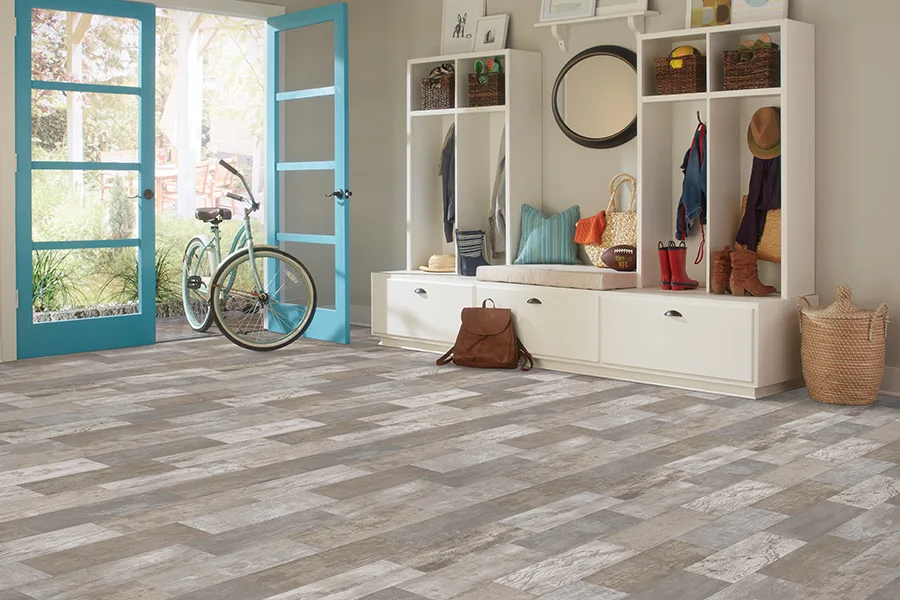Floor waterproofing is an important service that protects your home or building from water damage. Floors, especially in areas like basements, bathrooms, and kitchens, are often exposed to moisture. Without proper waterproofing, water can seep through the floor, causing damage to the structure, promoting mold growth, and leading to costly repairs. In this article, we will discuss floor waterproofing services in simple sentences to make it easy to understand its importance and how it works.
What Is Floor Waterproofing?
Floor waterproofing is the process of making the floor resistant to water. It involves using special materials and techniques to create a protective barrier on or beneath the floor surface. This barrier prevents water from entering and causing damage.
Why Is Floor Waterproofing Necessary?
- Protects the Structure:
- Water can weaken the concrete and other materials in your floor.
- Waterproofing prevents structural damage by keeping water out.
- Prevents Mold and Mildew:
- Moisture promotes the growth of mold and mildew.
- These can harm your health and damage your belongings.
- Avoids Costly Repairs:
- Fixing water damage is expensive.
- Waterproofing helps you avoid these costs by acting as a preventive measure.
- Improves Durability:
- Floors that are waterproofed last longer.
- They can withstand moisture and other environmental factors better.
- Enhances Property Value:
- A home with waterproofed floors is more valuable.
- Buyers are willing to pay more for a well-maintained property.
Types of Floor Waterproofing
- Cementitious Waterproofing:
- This method uses cement-based products to seal the floor.
- It is commonly used in bathrooms, kitchens, and basements.
- Liquid Waterproofing:
- A liquid coating is applied to the floor surface.
- Once it dries, it forms a waterproof layer.
- Membrane Waterproofing:
- A waterproof membrane, often made of rubber or plastic, is installed.
- This is effective for areas prone to heavy moisture.
- Epoxy Waterproofing:
- Epoxy coatings are applied to the floor to create a strong, water-resistant surface.
- This method is popular in industrial and commercial spaces.
- Bituminous Waterproofing:
- Bitumen-based materials are used to create a waterproof layer.
- This method is durable and long-lasting.
Steps in Floor Waterproofing
- Inspection:
- Professionals inspect the floor to find cracks, leaks, or weak spots.
- This helps identify problem areas that need special attention.
- Cleaning:
- The floor is cleaned to remove dirt, dust, and grease.
- A clean surface ensures proper application of waterproofing materials.
- Repairing:
- Cracks, holes, or other damages are repaired.
- This step ensures a smooth and even surface for waterproofing.
- Applying Waterproofing Material:
- The chosen waterproofing material is applied to the floor.
- The application may include multiple layers for better protection.
- Drying and Finishing:
- The waterproofing material is allowed to dry completely.
- A final protective layer may be added for extra durability.
Where Is Floor Waterproofing Needed?
- Basements:
- Basements are prone to water leakage and dampness.
- Waterproofing protects the basement floor from moisture and flooding.
- Bathrooms:
- Bathrooms have high levels of moisture and water usage.
- Waterproofing prevents water from seeping through the floor.
- Kitchens:
- Kitchens often experience spills and moisture from cooking.
- Waterproofing keeps the floor safe and durable.
- Balconies and Terraces:
- These areas are exposed to rain and weather changes.
- Waterproofing ensures they remain dry and damage-free.
- Swimming Pools:
- Waterproofing is essential to prevent water from leaking through the pool floor.
Common Problems Fixed by Floor Waterproofing
- Cracks in the Floor: Waterproofing seals cracks and prevents water from entering.
- Dampness: It stops moisture buildup that causes damp floors.
- Leaks: Waterproofing fixes leaks and protects the rooms below.
- Ponding Water: Proper waterproofing ensures water drains away instead of collecting on the floor.
Signs You Need Floor Waterproofing
- Water Stains: Stains or discoloration on the floor indicate water damage.
- Damp Smell: A musty smell suggests moisture problems.
- Cracked Surface: Cracks in the floor are signs that waterproofing is needed.
- Mold or Mildew: Mold growth is a clear sign of excessive moisture.
Benefits of Floor Waterproofing
- Protects Your Investment: Waterproofing keeps your home safe and well-maintained.
- Creates a Healthy Environment: It prevents mold and mildew, which can cause health problems.
- Saves Money: Preventing water damage helps you avoid expensive repairs.
- Increases Comfort: Waterproofed floors are dry and comfortable to walk on.
- Adds Durability: Waterproofing makes your floors stronger and longer-lasting.
DIY Waterproofing: Should You Try It?
While some people try waterproofing as a DIY project, it is better to hire professionals. Professionals have the tools, materials, and expertise to do the job correctly. Mistakes in waterproofing can lead to bigger problems, so expert help is a safer choice.
Cost of Floor Waterproofing Services
The cost of waterproofing services depends on:
- The size of the area.
- The type of waterproofing method.
- The materials used.
- Labor charges.
Although there is an upfront cost, waterproofing is a long-term investment. It saves money by avoiding repairs and increasing property value.
Choosing the Right Waterproofing Service
- Experience: Choose a service provider with experience in floor waterproofing. 3M Waterproofing has 11 year waterproofing service experience.
- Quality Materials: Ensure they use high-quality, durable materials.
- Affordable Pricing: Compare prices from different providers to find the best value.
- Warranty: A good service provider offers a warranty for their work. Get a reliable waterproofing solution with 12 months warranty from 3M Waterproofing.
- Customer Reviews: Read reviews or get recommendations to find a reliable company.
Conclusion
Floor waterproofing is essential for protecting your home or building from water damage. It prevents leaks, dampness, and structural issues while ensuring a healthy and safe living environment. By choosing the right waterproofing method and service, you can enjoy durable and long-lasting floors. Waterproofing is not just a service; it is an investment in the safety and value of your property.

